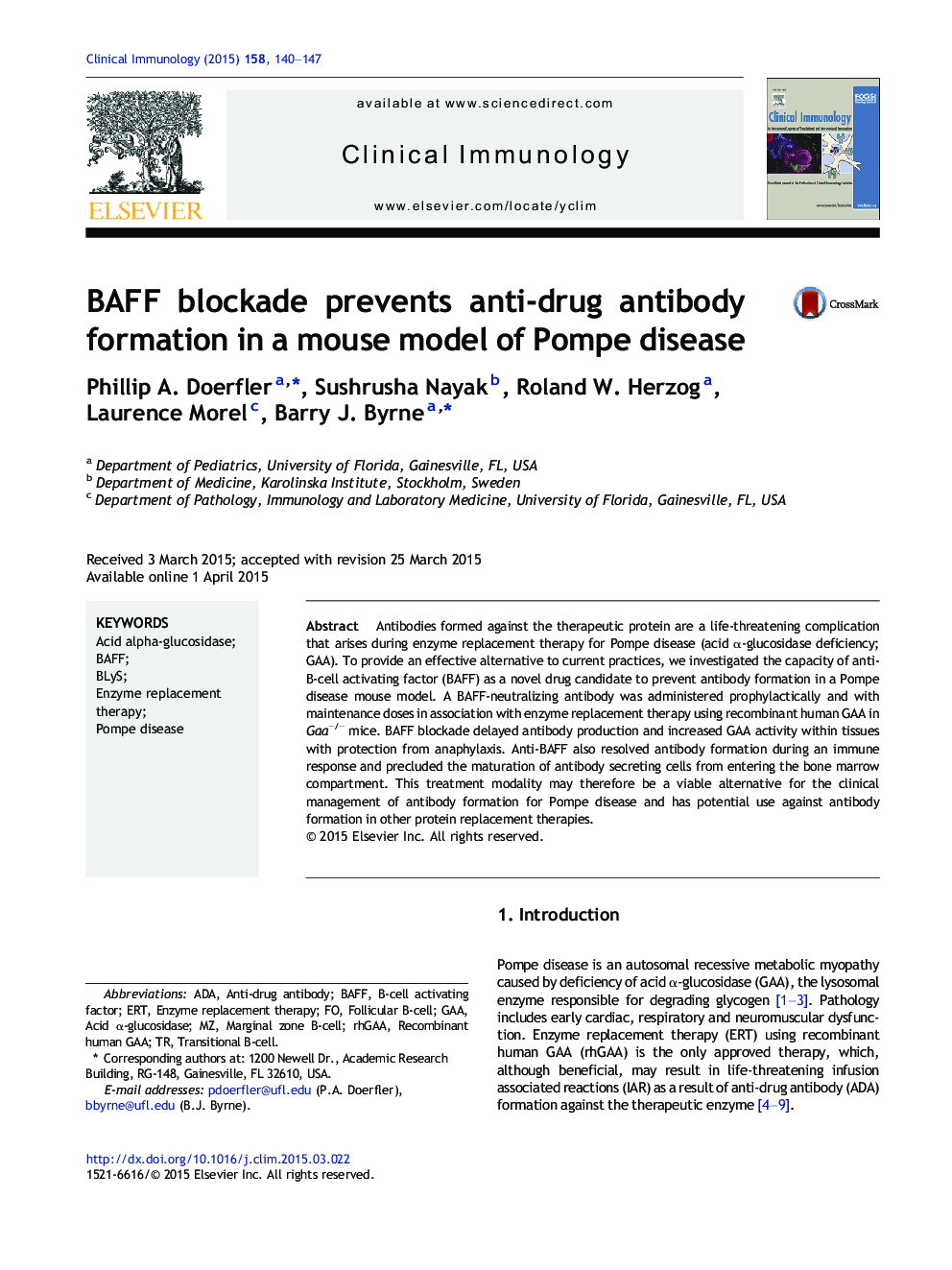| Article ID | Journal | Published Year | Pages | File Type |
|---|---|---|---|---|
| 6087427 | Clinical Immunology | 2015 | 8 Pages |
â¢Antibody production against GAA is delayed during anti-BAFF immunotherapy.â¢Anti-BAFF protects against ERT-related anaphylaxis.â¢Delayed antibody production is associated with increased GAA activity in tissues.â¢Continued BAFF blockade prevents the formation and migration of GAA-specific plasmablasts into the bone marrow.
Antibodies formed against the therapeutic protein are a life-threatening complication that arises during enzyme replacement therapy for Pompe disease (acid α-glucosidase deficiency; GAA). To provide an effective alternative to current practices, we investigated the capacity of anti-B-cell activating factor (BAFF) as a novel drug candidate to prevent antibody formation in a Pompe disease mouse model. A BAFF-neutralizing antibody was administered prophylactically and with maintenance doses in association with enzyme replacement therapy using recombinant human GAA in Gaaâ/â mice. BAFF blockade delayed antibody production and increased GAA activity within tissues with protection from anaphylaxis. Anti-BAFF also resolved antibody formation during an immune response and precluded the maturation of antibody secreting cells from entering the bone marrow compartment. This treatment modality may therefore be a viable alternative for the clinical management of antibody formation for Pompe disease and has potential use against antibody formation in other protein replacement therapies.
